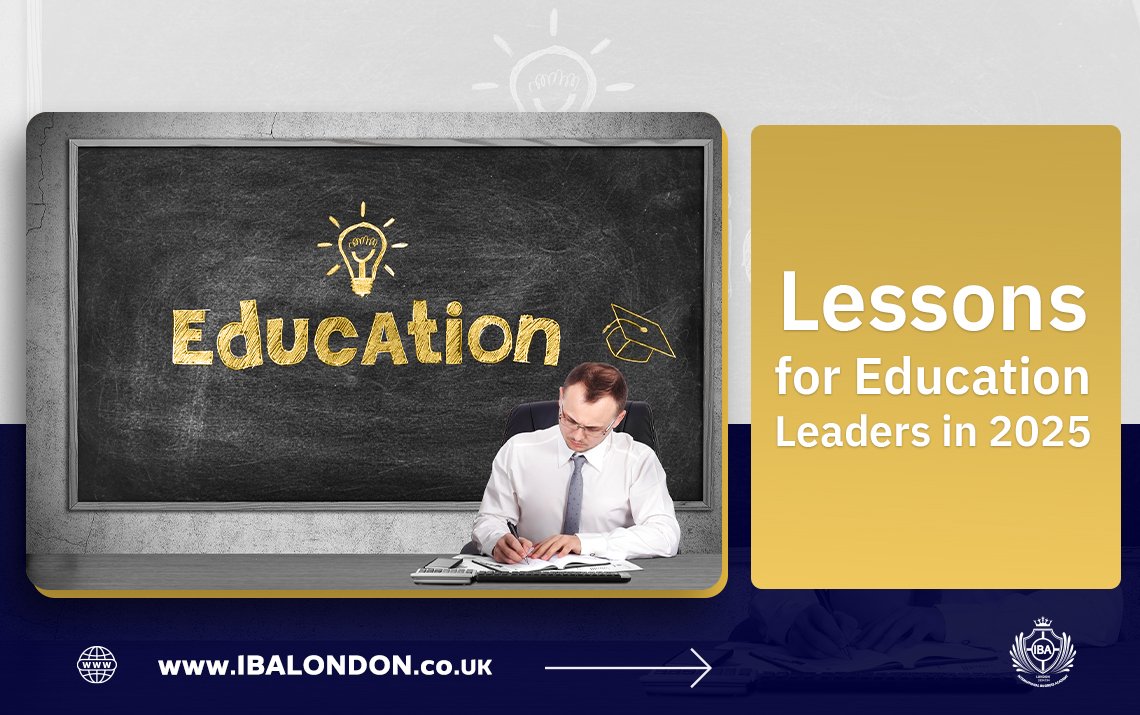
latest updated scientifical theories and case studies in our MBA
Why Scientific Theories Matter in Business Education
Science and business may appear to be worlds apart, but in reality, scientific thinking—hypothesis testing, experimentation, data analysis, and theory development—is central to effective business strategy.
MBA programmes must now be grounded in evidence-based management (EBM)—a decision-making framework that combines:
- Scientific research,
- Organizational data,
- Practitioner expertise, and
- Stakeholder input.
At IBA London, our MBA curriculum ensures students understand not only what works in management, but why it works—based on the latest scientific developments across business disciplines.
1. Updated Leadership Theories: From Traits to Systems Thinking
Traditional vs. Emerging Theories
For years, leadership education focused on trait theory and behavioral models. Today’s leaders, however, require a systems-level understanding of leadership, which incorporates neuroscience, psychology, and adaptive dynamics.
Latest Scientific Insights:
- Neuroscience of Leadership (Rock & Schwartz, 2022):
Shows how decision-making, emotional regulation, and stress management in leaders can be improved through understanding brain functions and applying mindfulness. - Complex Adaptive Systems (CAS) Leadership (Uhl-Bien et al., 2020):
Describes leadership as an emergent property of a complex system rather than a top-down directive role. Leaders are facilitators of adaptive capacity, not controllers of outcomes. - Psychological Safety and Team Performance (Amy Edmondson, 2019):
New research shows that fostering environments where team members feel safe to take risks leads to significantly better innovation and collaboration outcomes.
Integration in IBA London’s MBA:
- Our Leadership in Practice module includes simulations based on Edmondson’s psychological safety model and Rock’s SCARF framework, giving learners a hands-on experience in neuro-leadership and adaptive management.
The Pillars of a Strong Business Career Foundation
Let’s break down what it takes to build a business career from the ground up. Whether you’re just starting or looking to reboot your trajectory, focus on these foundational pillars:
2. Sustainability and ESG: From CSR to Circular Economy Thinking
Latest Scientific Models:
- Triple Bottom Line 2.0 (Elkington, 2021):
Updates the People–Planet–Profit model with regenerative and equitable development goals, incorporating social justice and environmental innovation. - Doughnut Economics (Kate Raworth, 2020):
Proposes a new economic model where businesses operate within planetary boundaries while meeting human needs. - Carbon Accounting Models (2023):
Recent research now allows firms to measure not just Scope 1 & 2 emissions, but also Scope 3 emissions—those in the value chain, crucial for realistic climate impact measurement.
Case Study at IBA London:
- Unilever’s Regenerative Business Strategy
Students study Unilever’s move from sustainability to regeneration, where they aim to positively impact soil health, water use, and biodiversity through their supply chains. - Patagonia’s Exit to Planet
The company legally transferred its ownership to a trust that reinvests profits into environmental causes. A live debate on “social purpose vs shareholder value” is conducted during our Strategic Ethics seminar.
3. Artificial Intelligence and Business Intelligence Theories
AI and data analytics are no longer side skills—they’re central to modern business leadership.
Scientific Concepts:
- Explainable AI (XAI) (DARPA/Google Research, 2021):
Modern AI must be interpretable to humans. This affects how AI is integrated into decision-making in HR, finance, and operations. - Decision Intelligence (Lorien Pratt, 2020):
Combines AI, causal inference, and decision theory to improve strategic forecasting. It’s becoming a core discipline in data-driven leadership. - Algorithmic Bias and Ethics (MIT, 2022):
New studies show how unchecked machine learning models can reinforce inequality and poor decision-making in recruitment, lending, and policing.
Case Studies:
- Amazon’s Biased AI Recruitment Tool (2018–2023)
Still widely discussed in ethics modules, students assess how a hiring algorithm inadvertently disadvantaged women applicants and what was learned from it. - Netflix’s Predictive Algorithms
In our Operations & Data Analytics module, students use predictive models to forecast content success based on viewer behavior, exploring real Netflix datasets.
4. Organisational Behaviour: Remote Teams and Cultural Intelligence
Latest Research:
- Virtual Team Dynamics (Peter Ivanov, 2021):
Updated research on virtual teams shows how to build trust, accountability, and cohesion across distance and time zones. - Cultural Intelligence (CQ) Evolution (Ang & Van Dyne, 2020):
Now includes digital fluency and emotional adaptability, not just cultural awareness. - Zoom Fatigue and Cognitive Load (Stanford, 2021):
A neurological study showing how extended virtual meetings affect focus, motivation, and team creativity.
Case Study at IBA London:
- IBM’s Remote Transformation Journey
Students examine how IBM transitioned 75% of its global workforce to hybrid working and rebuilt its performance measurement systems. - IBA’s Own Virtual Classroom Case
A reflective case study written by our faculty, where students evaluate the effectiveness of hybrid learning at IBA London using survey data and qualitative feedback.
5. Finance and Strategic Risk Theories
Financial decision-making is being reshaped by global instability, digital currencies, and behavioral science.
Updated Financial Theories:
- Behavioral Finance 2.0 (Thaler & Statman, 2021):
Adds insights into emotion-driven investing, herding behavior, and irrational risk aversion. - Crypto Economics and Blockchain Trust Models (2022):
Theories now explore decentralised finance (DeFi) and smart contract governance as credible frameworks for future investment. - Scenario-Based Strategic Risk Models (Harvard Business Review, 2023):
Post-COVID models stress scenario planning, real-options theory, and black swan preparedness.
Case Studies:
- Silicon Valley Bank Collapse (2023)
Used in our Corporate Finance module to analyse how poor risk diversification and interest rate exposure led to systemic failure. - Tesla’s Bitcoin Investment Strategy
A dynamic debate and spreadsheet simulation model the risks and rewards of cryptocurrency exposure in corporate treasury management.
How We Integrate These Theories at IBA London
How We Integrate These Theories at IBA London
- Live Case Studies: Real business cases are updated each semester to reflect emerging developments.
- Capstone Projects: Final projects challenge students to apply multiple new theories to solve a contemporary business challenge.
- Faculty Research Integration: Our lecturers actively conduct or collaborate on research in AI, leadership, and sustainability—and bring these insights directly into the classroom.
- Webinars and Guest Speakers: Thought leaders, researchers, and innovators join our sessions to share real-time insights from the field.
Final Thoughts
As the global business environment continues to evolve, the theories we teach and the case studies we analyse must evolve too. At IBA London, we are proud to offer an MBA experience grounded in evidence, relevance, and future-readiness.
By integrating the latest scientific theories and global case studies, we ensure our graduates are not just reacting to the future—they are shaping it.


